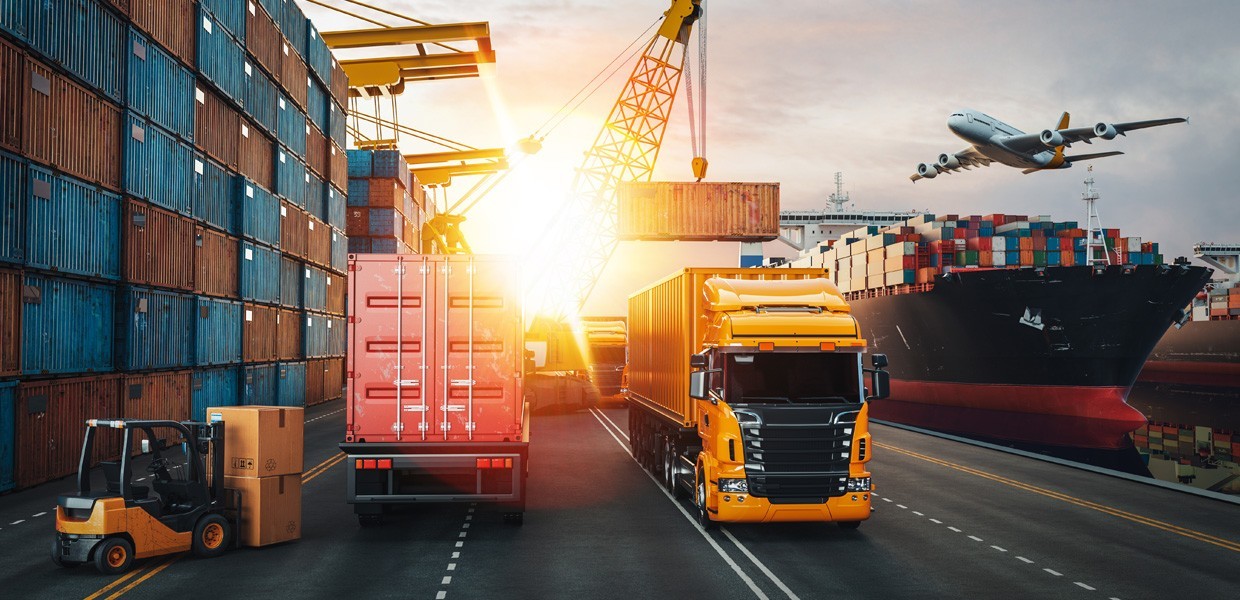Technology is in a constant state of evolution. With access to new and better technologies, we are changing the way we manufacture, transport, access and consume goods. This is no different for the freight forwarding industry and they are very optimistic about the benefits they have seen – and hope to see – from these modern innovations.
We are in a new technological age that has made pipedreams of a decade ago more likely than ever. Electric vehicles, sub-orbital transportation, solar-powered grids and automated machinery are all becoming part of this new reality. There has already been a significant digitisation and automation within the freight forwarding industry and whether it concerns sea, air or road freighting, there are industry-wide benefits being felt.
Recently, IAG Cargo conducted a global survey of over 400 freighting companies across 47 countries. IAG Cargo is the cargo handling division of the International Airlines Group (IAG) which also owns British Airways. The survey reflected trends in the industry that freight forwarders are noticing these consistent technological changes. Of the people surveyed, over 80 percent believe these innovations will have a positive impact on the industry as a whole.
This expansive survey also found that, over the coming years, increases in automation and digitisation are the most important and prevalent trends freighters are seeing within their industry. These were closely followed by eCommerce innovations and global trade disputes as having the most significant impacts on the health of their business.
Enik Matanov, Director of Strategy & Revenue Optimisation for IAG Cargo, said “we are hugely encouraged by the global appetite of freight forwarders to implement real change in the fields of digitisation and automation.” IAG Cargo has been experimenting with new ideas; investing in innovative solutions, trialling new technologies and working with various start-ups to propel the field forward.
Any business that is wanting to succeed in the modern world must evolve and adapt to the constant changes happening across every sector thanks to digital advancements and the online world. Automated factory floors, global cargo tracking, multimodal transportation systems and self-driving vehicles are just the beginning of the changes that will be affect the freight forwarding and transportation industries.
The digital age is affording companies the opportunity to make their goods and services more accessible, affordable and autonomous while facilitating more cost-effective and environmentally-friendly practices.
Industries like manufacturing, transportation and construction are usually at the forefront of innovation and are known for finding cleaner and more efficient ways of conducting their business. For example, these innovations have allowed people and goods to be transported by vehicles (sea, air and road) that are becoming smarter, greener, cheaper and safer.
By digitising business processes and supply chains, the freight forwarding industry is keeping up with one of the most common corporate trends worldwide. Whatever your business, whatever your trade, the global economy is being transformed by these intelligent and ground-breaking digital infrastructures.
Despite being inevitable, these changes are providing alternatives to the traditional methods by which we transport cargo around the world that are better for profits and the planet. They have given consumers access to more effective tracking, advanced online accounting, digital support and better interfacing. These implementable changes have been shaking up the industry for years and are making freighter forwarders more cost-effective and user-friendly than ever.
There are some challenges that come with these changes and will require careful consideration. One of the biggest challenges will be maintain human workforces. As automation, machine learning and digitisation continue, human inputs could become less and less needed in their traditional roles. There will be new jobs for workers needed to leverage these technological advancements who would have to be trained with a new set of skills.
Freight forwarding is already a complex industry with many systems, processes, infrastructures and technologies working in tandem to deliver services. Technology and techniques can become outdated quickly (hence, the new skillsets and training needed) and digitising those setups can make them more adaptable to change. Freight forwarders of all sizes and types are strengthening their operations with digital assistance.
It seems inevitable that all companies will make the leap towards digitisation. There are endless benefits to having a digital system that is designed to adapt to the needs of the modern commercial world. It does not matter the mode, niche or size of the freight forwarding company, everyone should be optimistic about the future of freighting and cargo transportation.
The future is looking very bright for sea, air and road freight forwarders. The possibilities that are created through investing in new technologies and digital systems are ensuring that the freight forwarding industry will continue to evolve and transform for many years to come.



